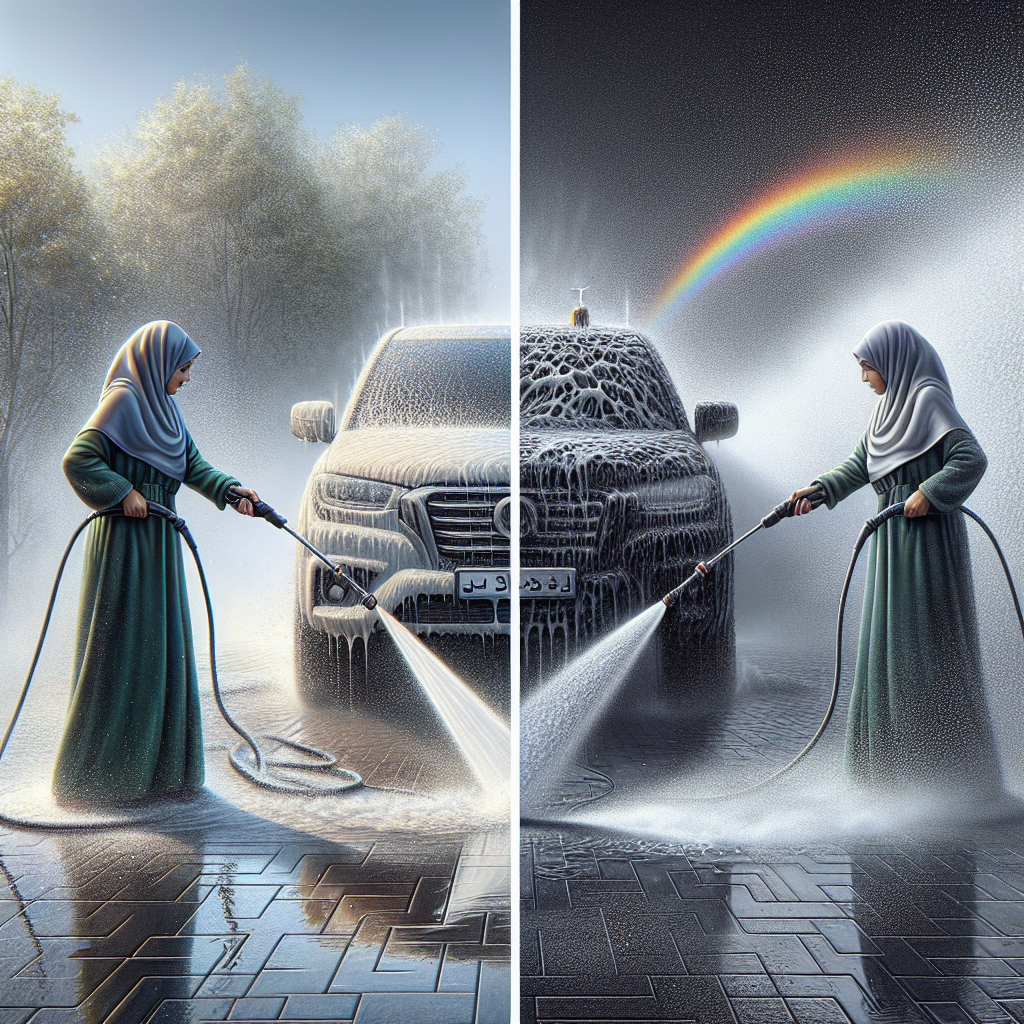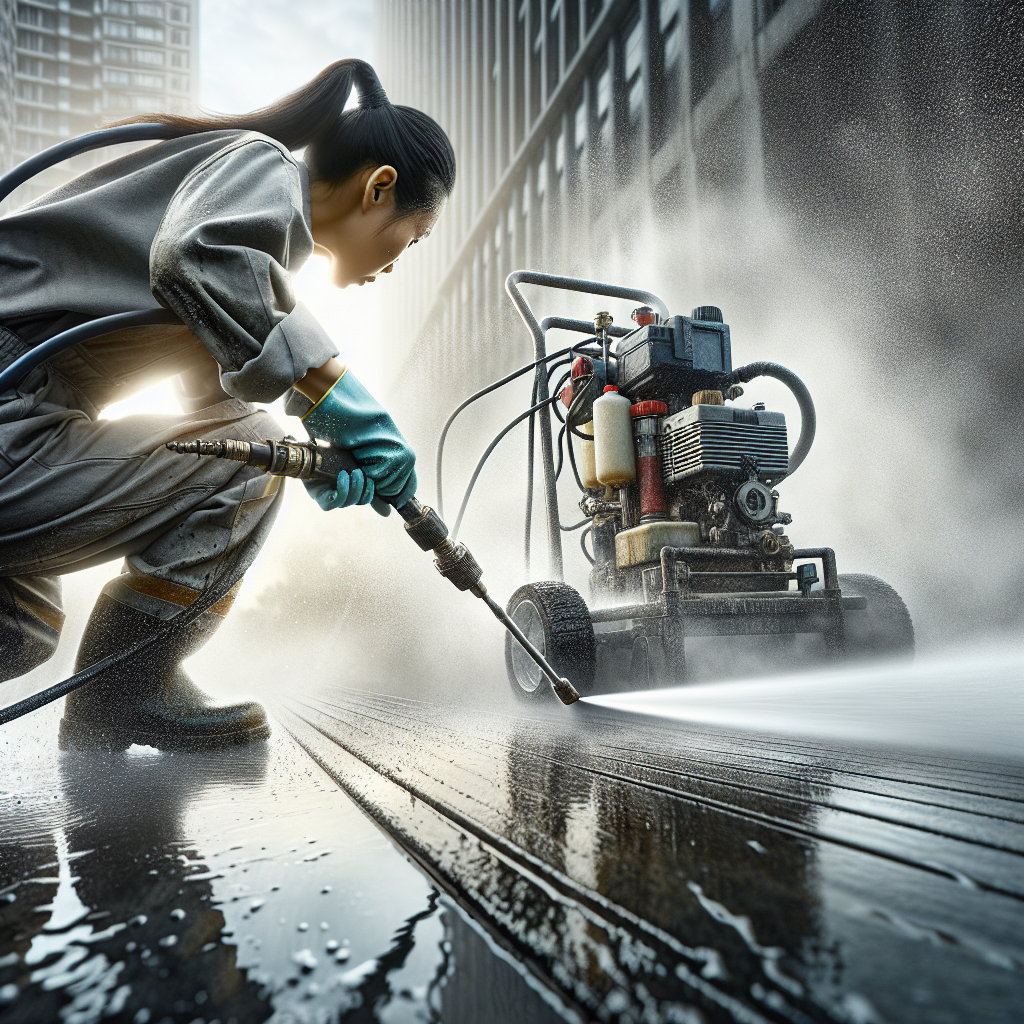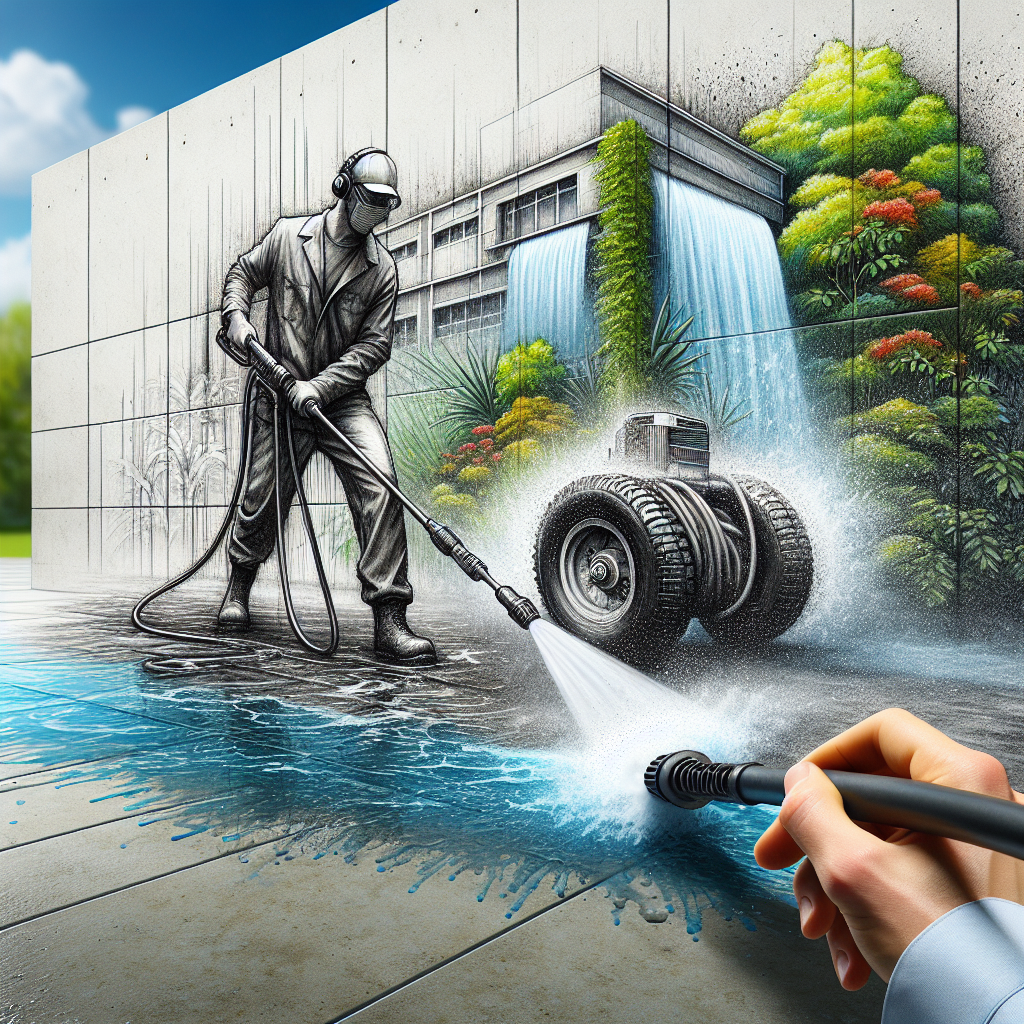Top Pressure Cleaning Tips You Need to Know!
Pressure cleaning, also known as power washing, is an effective method for removing dirt, grime, mold, and other contaminants from a variety of surfaces. It involves the use of high-pressure water spray to clean surfaces such as driveways, sidewalks, decks, and roofs. This technique not only enhances the visual appeal of your property but also helps in extending the lifespan of surfaces by preventing damage caused by accumulated dirt and debris.
One of the key benefits of pressure cleaning is its ability to tackle tough stains and build-up that regular cleaning methods can’t handle. Whether it’s oil stains on your driveway or mold on your siding, a professional pressure cleaning service can make a significant difference. Additionally, maintaining a clean exterior can improve the overall health of your environment by eliminating mold and mildew, which can cause respiratory issues.
Are you ready to transform your property with expert pressure cleaning? Call or text 561-718-9851 to schedule your service today and see the difference for yourself!
Choosing the Right Pressure Washer
Selecting the appropriate pressure washer is crucial for achieving optimal cleaning results. Pressure washers come in various types and strengths, and choosing the right one depends on the specific cleaning tasks you have in mind. Here are some factors to consider:
- PSI (Pounds per Square Inch): This measures the pressure of the water. For lighter tasks like cleaning decks or patios, a pressure washer with 1,300 to 2,400 PSI is sufficient. For tougher jobs like stripping paint or cleaning large areas, a higher PSI (2,500 to 3,500) is recommended.
- GPM (Gallons per Minute): This indicates the water flow rate. A higher GPM means more water is being used, which can speed up the cleaning process. For most household tasks, a GPM of 2 to 4 is adequate.
- Electric vs. Gas: Electric pressure washers are generally lighter, quieter, and easier to maintain, making them ideal for smaller, less demanding tasks. Gas pressure washers, on the other hand, are more powerful and suitable for larger or more intensive cleaning projects.
- Nozzle Types: Different nozzles and spray tips offer varying spray patterns and intensities. A 0-degree nozzle provides a concentrated, high-pressure stream for tough stains, while a 40-degree nozzle offers a wide spray for gentler cleaning tasks.
By understanding these key factors, you can better select a pressure washer that meets your needs and ensures your cleaning tasks are completed efficiently and effectively.
Safety Tips for Pressure Cleaning
Pressure cleaning is an effective way to clean various surfaces, but it can also be hazardous if not done correctly. Here are some essential pressure cleaning tips to ensure your safety:
- Wear Protective Gear: Always wear safety glasses, gloves, and sturdy footwear to protect yourself from flying debris and accidental sprays.
- Inspect Equipment: Before starting, check the pressure washer for any signs of damage or wear. Ensure all connections are secure and that there are no leaks.
- Maintain a Safe Distance: Keep the spray nozzle at least 6 inches away from the surface you are cleaning to prevent damage and avoid injury from high-pressure water.
- Beware of Electrical Hazards: Avoid using electric pressure washers near water sources or in wet conditions. Always plug the washer into a GFCI outlet to prevent electrical shocks.
- Use the Right Nozzle: Select the appropriate nozzle for the task at hand. Using a nozzle with too narrow a spray can damage surfaces or cause injury.
- Be Mindful of Your Surroundings: Ensure that other people, pets, and objects are clear of the area you are cleaning. Be aware of slippery surfaces created by the water spray.
- Handle Chemicals with Care: If using detergents or cleaning agents, follow the manufacturer’s instructions carefully and never mix chemicals unless specified.
- Shut Off Properly: After finishing your task, turn off the pressure washer and relieve the pressure by pressing the trigger before disconnecting the hose and other attachments.
By following these safety tips, you can minimize risks and ensure a safe and efficient pressure cleaning experience.
Best Practices for Different Surfaces
Different surfaces require specific techniques and settings to achieve optimal cleaning results without causing damage. Here are some best practices for pressure cleaning various surfaces:
- Concrete and Driveways: Use a high-pressure setting and a rotary nozzle for effective cleaning. Pre-treat any oil or grease stains with a suitable detergent before pressure washing.
- Wood Decks: Choose a lower pressure setting to avoid gouging the wood. Use a fan tip nozzle and maintain a distance of at least 12 inches from the surface. Move the spray in the direction of the wood grain.
- Home Exteriors: For siding, whether it’s vinyl, brick, or stucco, use a low-pressure setting and a wide-angle nozzle. Pre-soak the surface with a detergent specially formulated for house exteriors to loosen dirt and mildew.
- Fences: Similar to wood decks, use a low-pressure setting and fan tip nozzle. Clean in sections and avoid prolonged focus on one spot to prevent damage.
- Patio Furniture: Use a gentle setting and a broad spray pattern. For stubborn spots, apply a mild detergent and scrub gently with a soft brush before rinsing.
- Vehicles: Use a low-pressure setting and a 40-degree nozzle. Pre-rinse the vehicle to remove loose dirt, apply a car-safe detergent, and rinse thoroughly. Avoid using high pressure around windows, mirrors, and trim.
- Roofs: Roof cleaning requires a delicate touch. Use a low-pressure setting and specialized cleaning solutions to remove moss, algae, and debris. Avoid using high pressure to prevent shingle or tile damage.
By following these best practices, you can ensure that each surface is cleaned effectively and safely, maintaining its appearance and longevity.
Eco-Friendly Pressure Cleaning Solutions
In an era where environmental consciousness is more important than ever, utilizing eco-friendly pressure cleaning solutions is a commendable approach. These solutions not only protect our surroundings but also promote healthier living spaces. Here are some ways to incorporate eco-friendly practices into your pressure cleaning routine:
- Biodegradable Detergents: Opt for detergents that are labeled as biodegradable and non-toxic. These products break down more easily in the environment, reducing the risk of water pollution and harm to local wildlife.
- Water Conservation: Use water-efficient pressure washers that minimize water usage without compromising cleaning power. Additionally, pre-soaking surfaces and using appropriate nozzles can help reduce water consumption.
- Natural Cleaning Agents: Consider using natural cleaning agents like vinegar, baking soda, and lemon juice. These household staples can effectively tackle dirt and grime while being gentle on the environment.
- Proper Waste Disposal: Ensure that any waste water generated during pressure cleaning is disposed of properly. Avoid letting contaminated water flow into storm drains, as this can lead to water pollution and harm aquatic ecosystems.
- Energy Efficiency: Choose energy-efficient pressure washers that consume less electricity. Battery-powered models can also be a greener alternative to traditional gas-powered units.
- Reuse and Recycle: Reuse cleaning materials where possible and recycle any packaging from cleaning products. This helps to reduce waste and promotes a circular economy.
By implementing these eco-friendly pressure cleaning solutions, you contribute to a healthier planet and demonstrate a commitment to sustainable living. Making small changes in our cleaning habits can have a significant impact on the environment.
Maintaining Your Pressure Washer
Proper maintenance of your pressure washer is essential to ensure it operates efficiently and has a long lifespan. Neglecting this can lead to decreased performance and costly repairs. Here are some key tips for maintaining your pressure washer:
- Regular Inspection: Before each use, inspect your pressure washer for any signs of wear and tear. Check hoses, nozzles, and connections for leaks or damage, and replace any faulty parts.
- Oil Changes: Just like any other engine, the engine of a gas-powered pressure washer requires regular oil changes. Refer to the manufacturer’s guidelines for the recommended oil type and change intervals.
- Clean the Nozzles: Nozzles can become clogged with debris over time, affecting the pressure and effectiveness of the washer. Use a nozzle cleaning kit or a small brush to remove any blockages.
- Flush Out the System: After each use, run clean water through the pressure washer to flush out any remaining detergent or debris. This helps prevent build-up and keeps the internal components clean.
- Store Properly: When not in use, store your pressure washer in a cool, dry place. Protect it from freezing temperatures, as water left in the system can freeze and cause damage. For long-term storage, consider adding a pump saver solution to prevent corrosion.
- Check the Filters: Periodically check and clean the water inlet filter to ensure there are no blockages that could reduce water flow and pressure.
By following these maintenance tips, you can keep your pressure washer in top condition and ensure it delivers optimal performance for years to come. Investing a little time in upkeep can save you from expensive repairs and downtime.
For professional pressure cleaning services and expert advice, visit our website or call or text 561-718-9851. Let us help you keep your surfaces spotless and your equipment running smoothly!




Recent Comments